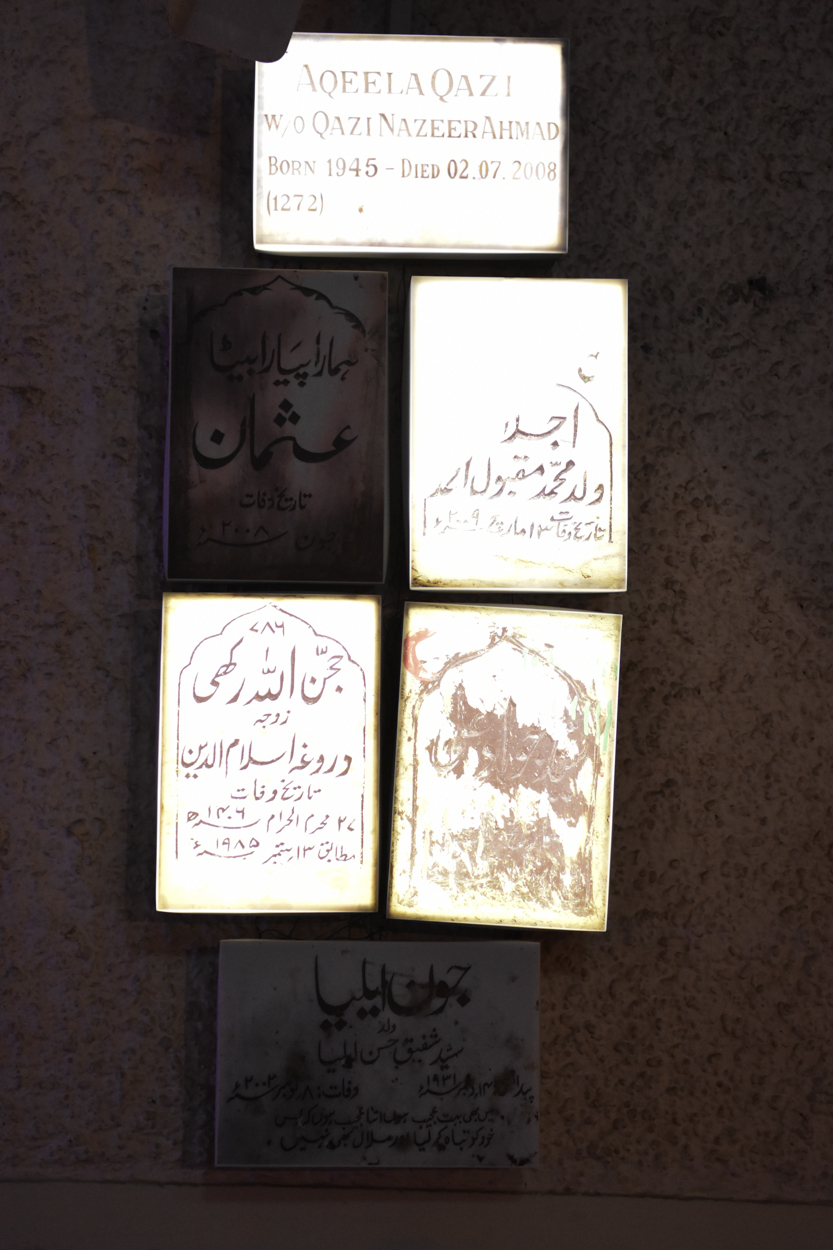Adeel uz Zafar
Born in 1975 in Karachi (Pakistan)
Lives and works in Karachi (Pakistan)
Adeel uz Zafar is a multi-disciplinary artist and illustrator, based in Karachi. Having obtained a BFA (with distinction) from the National College of Arts in 1998, his initial trajectory led him towards illustration, which has proven highly influential in his artistic practice. Whilst working as National Illustration Consultant for the Northern Areas Education Project in remote areas of Northern Pakistan, the absence of conventional artistic media forced Zafar to experiment with substitutes for paints and surfaces, precipitating the development of his characteristically reductive technique by engraving on exposed photographic sheet. Through obsessive repetition of this simple action of mark-making, he creates intricately textured forms imbued with a meditative and contemplative aesthetic. Zafar’s work has been exhibited nationally and internationally, with venues and art fairs including: Hinterland Galerie, Vienna; Lawrie Shabibi, Dubai; Art Stage Singapore; Art Basel, Hong Kong; Pulse Art Fair, New York; and the 2nd Kathmandu International Art Festival. Zafar has also held several national and international solo exhibitions, among them: Stranger than fiction at Gandhara-Art, Karachi; Monomania at Aicon Gallery, New York; and Protagonists at FOST Gallery, Singapore.
Zafar’s installation for the Karachi Biennale 2017, Tombstones/Katbay, which he created along with Noman Siddiqui and Hasnain Ali Noonari, explores the silent testimony of tombstones to the context of Karachi. The assiduous process of creating the work began by gathering photographic documentation from 182 graveyards in Karachi, spanning the geographic, ethnic, religious and socio-economic divides of the inherently diverse megacity. Zafar then transposed the selected cenotaphic inscriptions onto cardboard lightboxes – in most cases the deceased's name, date of birth, and date of death, epitaph, or prayer, at times containing pieces of funerary art in stone relief. In doing so, the artist has created his own microcosm of silent witnesses to Karachi’s historical and contemporary context; a multitude of engraved voices entering into a dialogue between memory and present actuality, each individual playing their own part in the unfolding history of cultural identity and coexistence. A site-specific installation, Zafar’s aesthetically adhesive representation of socio-cultural division, subverted by the collective tolerance of his postmortem community perfectly corresponds to its venue, The Theosophical Society of Karachi, one of the key tenets of which is: “To form a nucleus of the universal brotherhood of humanity without distinction of race, creed, sex, caste, or colour.”

Tombstones/Katbay, 2017.
Light boxes made with cardboard, LED light, print on transparent paper
Dimensions variable

